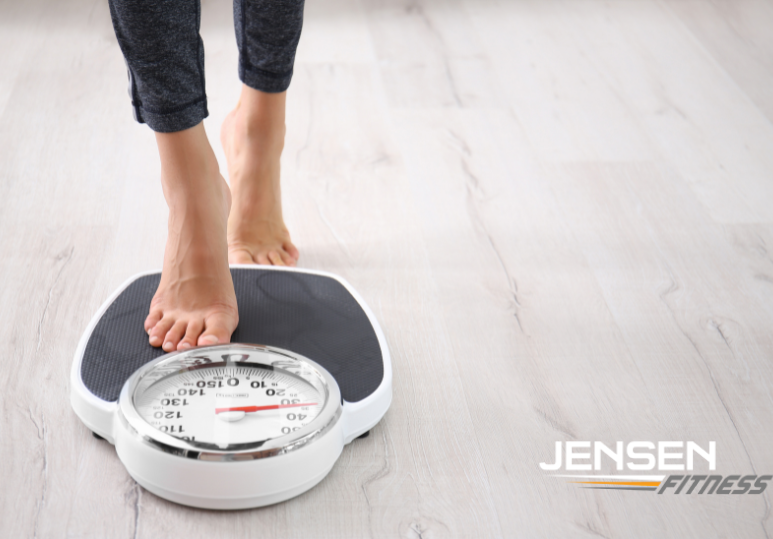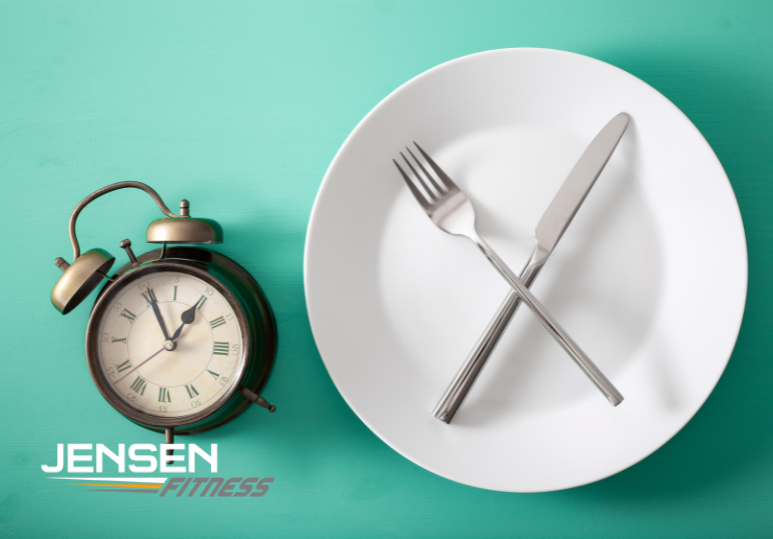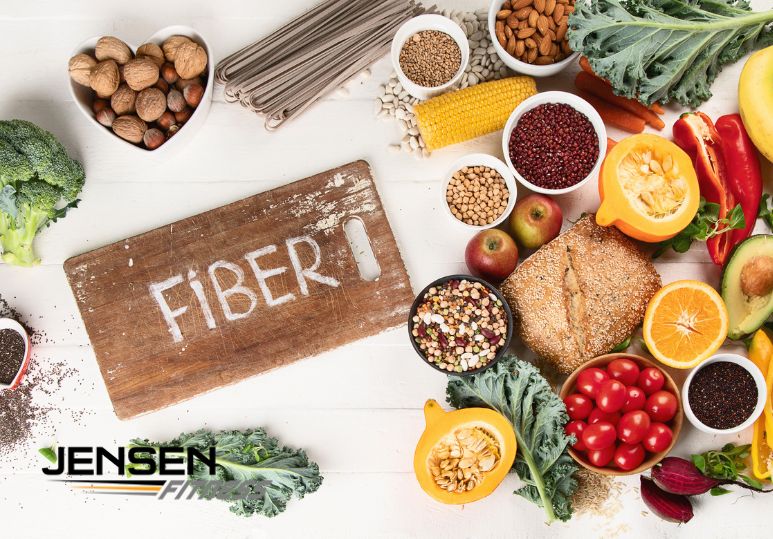Blogs

Why Can’t I Lose Weight During Menopause? | Jensen Fitness

Perimenopause vs Menopause: What’s Really Happening to Your Body?

What a Day on a Jensen Fitness Plan Really Looks Like

Struggling with Meal Prep? Our Calgary Dietitian Can Help

Why You’re Not Losing Weight—Even If You’re Working Out

Back on Track: Reclaim Your Routine After Summer with Jensen Fitness

The Role of a Registered Dietitian in Long-Term Health Change

How Personal Training Builds More Than Just Muscle

Why Fit3D Body Scans Are Better Than Weekly Weigh-Ins

5 Mistakes That Stall Weight Loss (And How Coaching Helps You Break Through)

Weight Loss in SE Calgary: Why Personalized Coaching Matters

What to Expect From a Registered Dietitian at Jensen Fitness

Weight Loss Isn’t One-Size-Fits-All: Personalized Coaching in SE Calgary

Personal Training in SE Calgary: Why Local Support Drives Real Results

Exploring Intermittent Fasting: Is It the Right Weight Loss Strategy for Calgarians?

What a Fit3D Body Scan Tells You (That a Scale Won’t)

How a Customized Nutrition Plan Can Help You Achieve Faster Results

3 Ways a Wellness Coach can Help you Overcome Fitness and Nutrition Barriers

5 Qualities to Look for in the Best Personal Trainer in Calgary

The Secret Behind Every Successful Fitness Transformation in Calgary

The Role of a Registered Dietitian in Your Fitness and Weight Loss Journey

How to Choose the Best Weight Loss Program for Your Body Type

5 Benefits of Online Personal Training for Busy Professionals in Calgary

3 Common Nutrition Mistakes a Registered Dietitian Can Help You Fix

Why a Structured Weight Loss Program Works Better Than Fad Diets

5 Ways Personal Training in Calgary Can Help You Stay Motivated

5 Weight Loss Myths That Are Holding You Back (And What to Do Instead)

How Online Personal Training Can Keep You Accountable Without a Gym

5 Reasons the Fit3D Scan is a Game-Changer for Your Body Transformation

Why Seeing a Registered Dietitian in Calgary is the Best Investment for Your Health

Why Health and Wellness Coaching is the Missing Piece in Your Fitness Journey

Personal Training vs. DIY Workouts: Which One Gets Faster Results?

3 Reasons Your Diet Isn’t Working (And How a Personalized Plan Can Fix It)

Calgary Dietitian Services: Personalized Nutrition Solutions with Jensen Fitness

Calgary's Best Online Personal Trainer: Achieve Your Fitness Goals with Jensen Fitness

Calgary Registered Dietitian: Your Guide to Personalized Nutrition & Lasting Health

Calgary Weight Loss Tips: Achieve Lasting Results with Personalized Training

Calgary Personal Trainer: 5 Reasons Why Exercise is Essential During Menopause

Calgary Personal Trainer: The Ultimate Guide to Exercise During Perimenopause

Calgary Dietitian: 3 Simple Lifestyle Changes to Ease Perimenopause Symptoms

Calgary Dietitian: 7 Superfoods to Boost Your Wellbeing During Menopause

Calgary Dietitian: The Importance of Omega-3 Fatty Acids During Menopause

Calgary Dietitian: The Importance of Fiber in a Perimenopausal Diet

Calgary Dietitian: Nutritional Strategies for Managing Menopausal Symptoms

The Science Behind Emotional Eating: Strategies Offered by Nutrition Coaches

Weight Loss And Exercise During Menopause

How to Achieve a Lasting Fitness Transformation (Without Extreme Dieting)

Testimonials: April's Weight Loss Success Story

Testimonials: Michelle's Transformation Success Story

Testimonials: Shannon's Incredible Weight Loss Transformation

Testimonials - Erin's Calgary Weight Loss And Personal Training Journey

9 Ways Regular Fitness Can Benefit You As You Age

Testimonials - Tim's Calgary Personal Training Success Story

Testimonials: Ashley's Weight Loss Success Story

Testimonials: Lindsay's Weight Loss Success Story

Testimonials: Geoffrey's Fitness Success Story

Testimonials: Nicole's Calgary Personal Training Success Story

Testimonials - Cheryl's Calgary Personal Training Success Story

Testimonials - Cobi's Calgary Personal Training Success Story

Testimonials: Sean's Weight Loss Success Story
A ROADMAP FOR YOUR JOURNEY TO WELLNESS

Whether you’re looking for a customized weight loss program, or a nutrition coach to help you live healthier, we’ll give you all the support and encouragement you need to get lasting and incredible results.


